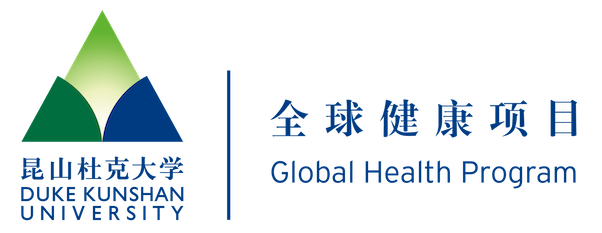From DKU Research Assistant to DKU Graduate Student
Looking back on my three years at Duke Kunshan University (DKU), I often feel that everything started from a series of unexpected yet serendipitous moments. When I finished my bachelor’s degree, I was quite lost about my future. I had a wide range of interests, but none strong enough to anchor a clear direction. At the time, I got two general paths to consider—either go into research or go for a company job. It was in this context that I came across a recruitment post by Professor Huansheng Cao. He was looking for a research assistant. Driven by a simple “why not give it a try?” mentality, I applied—and that decision marked the beginning of a life-changing journey.

One thing Professor Cao said the most was: “Be goal-oriented.” Over time, this seemingly simple advice became my guiding principle—both in thinking and action. In the lab, I started to learn how to ask questions, identify root causes, and figure out solutions—instead of simply following the instructions. That’s when I realized doing research is just about “wrestling” with problems, finding meaning in making mistakes, and experiencing the thrill of breakthroughs. It felt like solving a complex puzzle—challenging, addictive, and incredibly fulfilling.

As I gradually found my direction, Professor Cao one day said to me, “Have you ever thought about applying to DKU’s Master of Science in Global Health program?” At first, I was hesitant. But by then, I found myself already developed a sense of identity for DKU’s inclusive academic environment, its interdisciplinary approach, and the thought-provoking conversations I had with peers. Global Health, as a field, aligned both with my undergraduate background in veterinary medicine and my longstanding desire to help solve real-world problems for people. I submitted my application without hesitancy.
Diversity and Inclusion: The Core of Global Health
It wasn’t until I officially started the program that I truly understood what a “challenge” meant. The all-English instruction, an entirely different course structure, and the frequent presentations, discussions, and group projects left me overwhelmed at first. But it was precisely this high-intensity training that gradually helped me adapt and build my own voice and confidence. I’m especially grateful to Joe, my instructor in Academic English Expression. He would always encourage me with a cheerful, “Happy! You can do it!” Under his supportive teaching, I began practicing speaking without notes, learned to control the rhythm and pauses of a presentation, and slowly transformed from a quiet, nervous student into someone who could lead the flow of a room from the stage.

Many of the Global Health courses reshaped my previous understanding of what “health research” truly entails. For instance, when I first took Global Health Challenge, I assumed it would be similar to the veterinary epidemiology I studied during my undergraduate years. But I soon realized the course offered a much broader perspective—examining problems through lenses such as policy, funding, and human rights. This kind of structured, multidimensional thinking greatly extend my views when doing research.

My favorite course was Research Design. It was the first time I systematically went through the entire research process—from developing research questions and hypotheses to designing experiments and analyzing results. It helps me understand that that research isn’t just about lab work—it’s a form of critical thinking. This shift in mindset influenced my choice of the later PhD applications.
From a daunting challenge to a deep passion
The path of scientific research is never smooth, that is for sure. One of the most painful yet rewarding challenges was learning R programming and creating WGCNA analysis plots. As someone with zero coding background, I had to rely on manuals, papers, and online tutorials, slowly teaching myself to write code and debug errors again and again. From not knowing where to start to finally producing a stunning and complex data visualization after more than two weeks of effort, what I felt wasn’t exhaustion—but a deep, grounded sense of accomplishment. At that moment, I knew I truly enjoy doing research, and I’m willing to devote myself to it.
I feel incredibly lucky to have had a mentor like Professor Cao. He not only taught me the methods of research, but also helped me understand—on a tangible level—”what it means to truly love a question”. I used to get frustrated when I couldn’t isolate cyanobacteria in the lab, while Professor Cao would respond with excitement: “Interesting!” He was fascinated by the symbiotic relationships between algae and bacteria, and would dive into stacks of literature sparked by a single new idea. His passion for science was truly contagious.

As I prepare to start my PhD journey in the U.S., I feel both excited and nervous. I look forward to the day when I can work on a research project that’s fully my own, and to the possibility of expanding the boundaries of research using computational models—not just as a user, but as a model builder. I know the road ahead won’t be easy, but my time at DKU has taught me this much: Yes, I am ready.
Tips for Future Global Health Students
I used to fear choosing the wrong path, and afraid of not being “good enough” to show up. But looking back now, here’s what I truly want to say: Don’t be afraid to make mistakes. Every step you take—whether it feels right or not—has its own value.You might discover joy in the lab, or fall in love with in-depth discussions in class. You might find your direction through a single sentence from a professor, or experience a significant breakthrough after a presentation that left you in tears.

What DKU gave me wasn’t just skills or resources—it gave me confidence, courage, and a sense of belonging. It’s a place where you’re allowed to try, to fail, and to speak up. Once you step in, you’ll realize: you have the right to choose, to change, and most importantly, you’ll be supported along the way.

